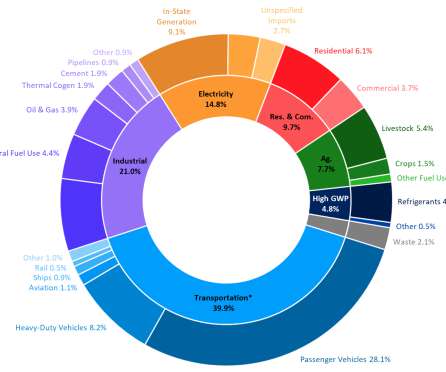Latest GHG Inventory shows California remains below 2020 emissions target; much steeper rate of GHG reductions required
Green Car Congress
OCTOBER 23, 2020
California’s latest greenhouse gas data shows that while the state continues to stay below its 2020 target for emissions, there is much more work to do to achieve carbon neutrality by 2045. Per capita GHG emissions in California have dropped from a 2001 peak of 14.0 Transportation emissions declined 1.5 tons per person to 10.7
























Let's personalize your content